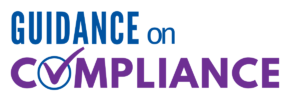This article is the second in a multi-part series discussing the concepts of organizational intelligence and their impact on healthcare providers. Read Part 1 here.
“Culture” is a word often used to describe intangible feelings when interacting with an organization. It’s that certain “je ne sais quoi” that you get when you feel at home with a group of likeminded people. Organizational Intelligence takes those feelings and places them into a more scientific context. That feeling of belonging can be observed as your ability to acquire, process, and utilize information in a way that your co-workers, and the organization, agree with and value. The competence to process information in this way is, in addition to one’s strength in acting on it, is a building block of organizational culture.
Acquiring Information
How do the people in your organization acquire key pieces of information that will improve the operation of your business? Perhaps there is an internal evaluation mechanism that helps keep track of your KPI’s. Or, technology may be critical in analyzing trends in your sales cycle. The ability of your organization to acquire information at the least possible “cost” (whether measured in man hours or dollars) is often what drives a business forward.
Former Secretary of Defense Donald Rumsfeld, was an expert at understanding the need for his department to acquire the best information, at the least possible cost, especially as it relates to assessing risks. He divides the world up into four categories:
Known / Knowns – These are pieces of information we’ve already acquired and that are easily accessible to the organization. For instance, you probably know the current census at your facility, and that metric is easily obtained and shared.
Known / Unknowns – This describes when you identify a key piece of information that you are missing. When a healthcare provider undertakes a market study, they are tackling a “Known / Unknown”; the group wants to better understand the market, so they acquire that data.
Unknown / Knowns – These are the institutional memories that your organization has, but probably aren’t documented anywhere. When someone says, “Oh, we tried that before and it didn’t work”. They are describing an Unknown / Known. A person has generated an idea that the group knows is ineffective, but it hasn’t been documented or shared appropriately.
Unknown / Unknowns – This is the most dangerous category, as it identifies the blind spots for your business. Think of this as information that you don’t even realize you need but could drastically change your outlook or operations. Organizational consultants, such as LW Consulting, Inc. (LWCI), and data scientists are excellent at finding the Unknown / Unknowns with your organizations.
How your organization responds to acquiring information in these categories is central to the culture that you create.
Processing Knowledge
Once you’ve acquired an important piece of information, what is done with is? How is this recorded and shared with a wider audience? Today, we utilize technology to help with this step.
A nurse learns that Mr. Jones has trouble hearing out of his left ear because of a childhood injury. How is that information processed and made available to others? It might be documented in an Electronic Health Record; or, more commonly, the shift nurse might just tell her coworkers to make sure to speak into Mr. Jones’ right ear.
Well managed cultures revolve around empowering teams to share important information, and being sure they are given the right tools to do it.
Utilizing Intelligence
Just because you’ve acquired a critical piece of information and made it easily accessible to those who need it, doesn’t mean that it’s being utilized in a smart way. In the above example, a nurse may know that Mr. Jones has trouble hearing out of his left ear, but not take it into account because of carelessness or workload. Cultures of “Person Centered Care” take great efforts to ensure that caregivers are utilizing acquired and processed information in a way that makes an individual’s experience better.
Next level information utilization is what separates good cultures from great cultures. Finding out about Mr. Jones’ hearing problem is step one. Documenting and disseminating that information is step two. Applying that information for a better care experience is step three.
But, when an organization uses that information to adapt itself to provide a better experience, we’ve reached meta level information processing. In the case of Mr. Jones, that might be moving his room so that his good ear faces the door and provides for a clearer listening path.
In this way, Organizational Intelligence measures a culture’s ability to acquire information, disseminate it appropriately, and act on it – on an individual level, as well as organizationally. Such a process might sound easy, but creating and maintaining these kinds of organizational mechanisms can take years, even when done with the best of intentions.
The next part of this series will discuss the concept of Loop Learning and apply it to care settings.
LW Consulting, Inc. (LWCI) offers a comprehensive range of services that can assist your organization in maintaining compliance, identifying trends, providing education and training, or conducting documentation and coding audits. For more information, contact LWCI to connect with one of our experts!


